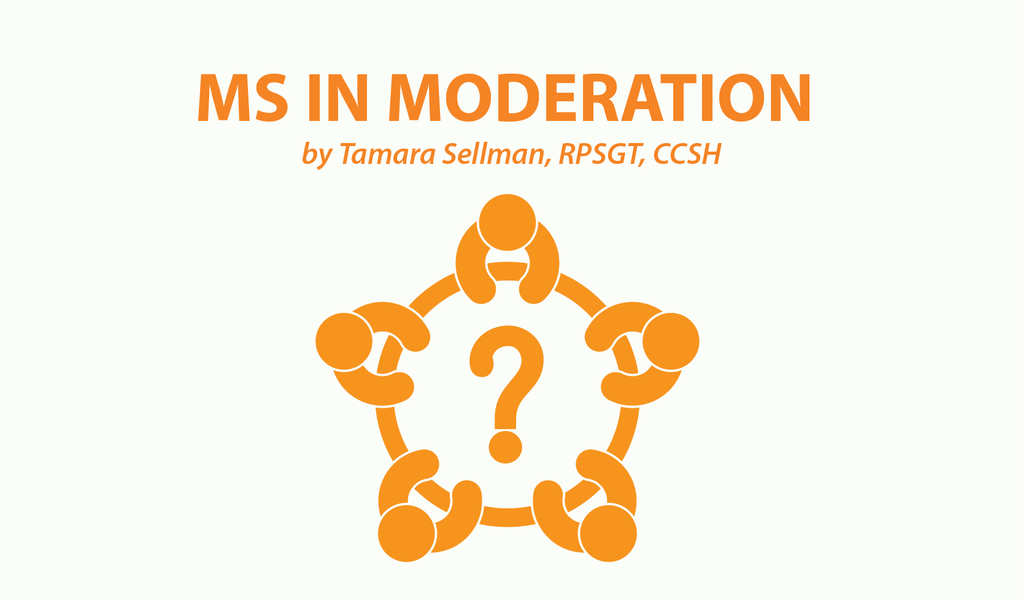The MS Alphabet: Optic Neuritis, Occupational Therapy, and Other ‘O’ Words


Editor’s note: Tamara Sellman continues her occasional series on the MS alphabet with this column referencing terms starting with the letter “O.”
Symptoms of MS
Optic neuritis
This is a common symptom of MS, though not everyone who experiences optic neuritis has MS. According to the Mayo Clinic, up to 20 percent of people with MS experience optic neuritis as their first sign of MS. As many as half of all people who have an episode of optic neuritis will go on to develop MS.
Optic neuritis occurs when the immune system attacks the optic nerve, damaging the myelin and generating an inflammatory response. It can lead to pain in the eyes and face, vision blurring or loss, flickering lights perceived during eye movement, problems with color vision, or impairment of peripheral vision.
MS abbreviations
OMIM (Online Mendelian Inheritance in Man)
Given the huge amount of energy and attention being placed on neuroscience and genetics to better understand chronic illness, it’s likely that the term OMIM will come up more and more in clinical research regarding MS.
OMIM, or Online Mendelian Inheritance in Man, is a famous catalog of human genes, genetic disorders, and traits. It is continuously updated and efforts specifically target relationships between genetic variations and their physical expression as traits.
For people with MS, the catalog may be difficult to parse as it is written specifically for interpretation by geneticists. However, searching OMIM for “multiple sclerosis” shows what is currently known and recorded, or mapped, genetically about MS, such as features like propensity and susceptibility.
OMIM is currently curated by The Johns Hopkins University School of Medicine at the McKusick-Nathans Institute of Genetic Medicine.
Common MS terms
Occupational therapy
Many people who are diagnosed with MS enter into occupational therapy as a form of rehabilitation following an MS “attack” or relapse.
Occupational therapy is not just about functionality at a job, despite the way it’s referenced.
It helps a person recuperate from life-altering symptoms such as incontinence, memory loss, tremors, or other physical or mental behaviors that can significantly disrupt one’s activities of daily living.
Some common areas of focus for occupational therapy include training patients with MS to:
- Use adaptive equipment such as canes, reachers, bars, wheelchairs, or walkers to ambulate safely and avoid falls
- Learn new ways to safely prepare food or dress and groom oneself
- Discover workarounds for fatigue (use memory aids, practice new habits that simplify basic tasks) so that everyday activities become less difficult or exhausting
- Practice adjustments to physical activities such as weight-lifting or yoga to ensure their continued enjoyment.
The biology of MS
Oligoclonal bands
The lumbar puncture procedure is ordered by a neurologist as one way to help confirm an MS diagnosis. During the procedure, spinal fluid is extracted and examined in a lab.
What the neurologist is looking for is the presence of certain proteins in the spinal fluid known as oligoclonal bands.
If two or more oligoclonal bands show up in the results, it indicates the presence of MS. About 95 percent of all people with MS have a positive result for oligoclonal bands in their spinal fluid.
MS treatments
Ocrevus
Ocrevus (generically known as ocrelizumab), is a new treatment for both relapsing-remitting (RRMS) and primary progressive (PPMS) MS. It is administered twice annually as an intravenous infusion following a first-time double-infusion that is given two weeks apart at the beginning of therapy.
People with PPMS who have taken Ocrevus have been shown to be 24 percent less likely to have disability progression, according to recent research. Walking speeds have been shown to improve and lesion loads have been shown to reduce in patients with PPMS who take this medication. Nearly half of all people with PPMS using ocrelizumab saw a reduction in relapse rates, as well.
This medication, like all MS medications, also has the risk of serious side effects, such as the development of breast cancer, that need to be considered before choosing it as a therapy. Talk to your doctor.
***
Note: Multiple Sclerosis News Today is strictly a news and information website about the disease. It does not provide medical advice, diagnosis, or treatment. This content is not intended to be a substitute for professional medical advice, diagnosis, or treatment. Always seek the advice of your physician or other qualified health provider with any questions you may have regarding a medical condition. Never disregard professional medical advice or delay in seeking it because of something you have read on this website. The opinions expressed in this column are not those of Multiple Sclerosis News Today or its parent company, Bionews Services, and are intended to spark discussion about issues pertaining to multiple sclerosis.







Sandra
I am 60 with P.P. M.S. and went through all the tests to try the new Ocrevus. But I have 1 problem. I can not any type of steroids. As I have too many bad reaction to it. So my Dr tried something else and again I reacted. So I am not able to try it. At the present time I am not on anything. My Dr is just trying to treat me as good as he can. I barely can walk, have lost most feeling in my right side now.Sleep alot and in a lot of pain. I just hope they come up with something soon. As I was diagnosed in 2009 kind of late. My first Dr didn't do anything much so I found a better Dr and travel 156 miles 1 way. But it is worth it. Just wish it was found earlier..I have to depend on my daughter who has 4 children and has fibromyalgia herself. So we take care of each other.